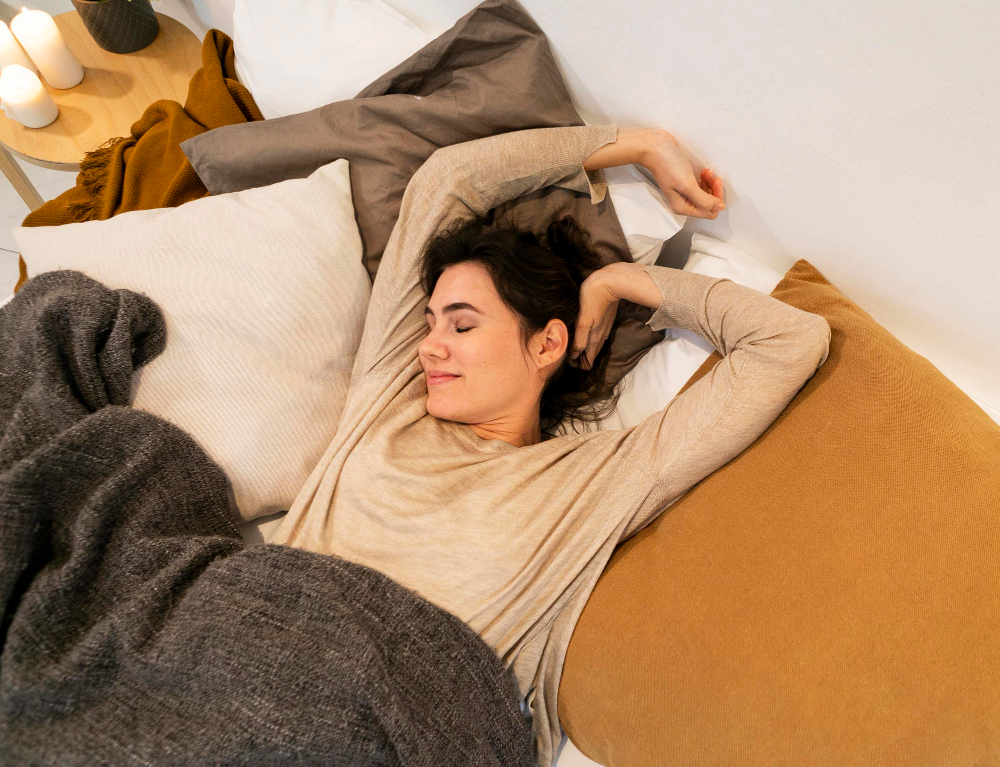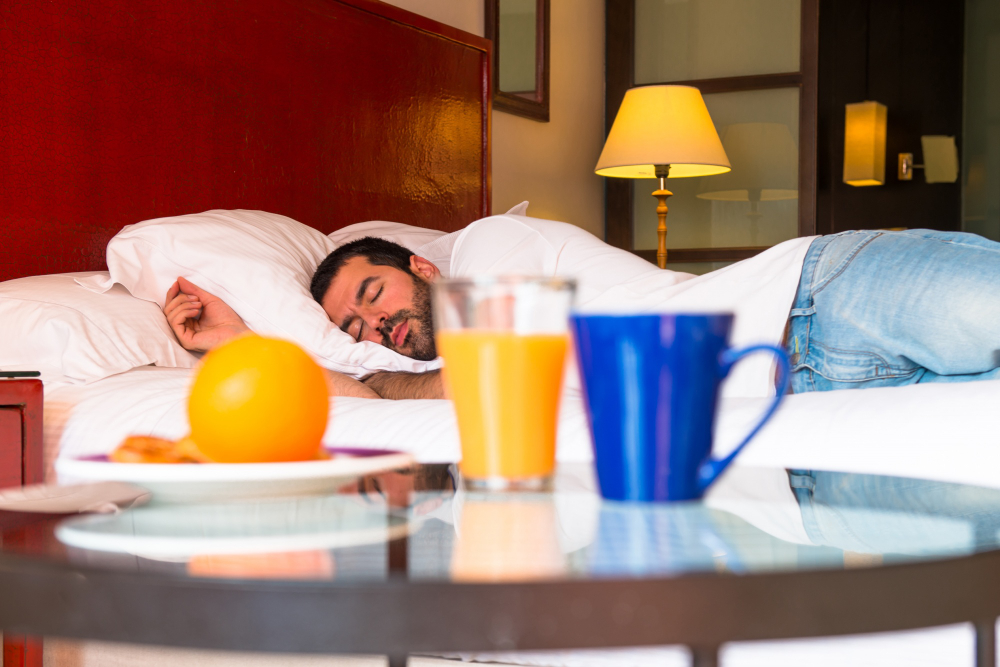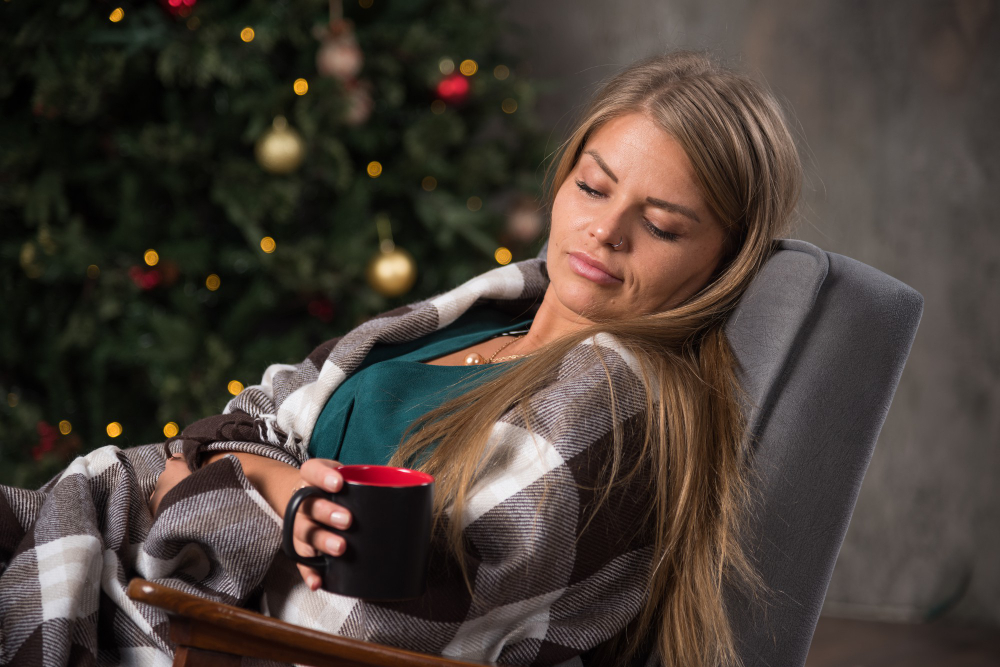Gobble, gobble, friends! It’s turkey season, a.k.a. the holiday season. Grab your stretchy pants and get ready for family, friends, and food – lots and lots of food. Every third Thursday of November, Americans gather and gorge on Thanksgiving feasts, inviting diets to exit stage left as we eat like bears before hibernation.
Most Thanksgiving celebrations feature many traditional side dishes, which can differ from table to table. However, the star of the show is inevitably the turkey. Whether you side with white meat or dark meat, we are all guilty of piling our plates with more turkey than necessary knowing we will likely experience full tummies and sleepiness post-feasting – which brings us to today’s blog topic: does overeating turkey cause drowsiness?
Since sleep is our favorite subject, we decided it’s time to address the long-standing rumor about turkey and post-meal sleepiness, which means having a candid discussion about tryptophan.
What is tryptophan?
Tryptophan is an essential amino acid and a vital building block for protein in the body. There are 20 known amino acids, nine of which (including tryptophan) cannot be created within the body and must be consumed in the diet, thus considered “essential.” 1 Our bodies use tryptophan to help make melatonin and serotonin. Melatonin helps regulate the sleep-wake cycle, while serotonin can help regulate appetite, sleep, mood, and pain. The liver can also use tryptophan to produce niacin (vitamin B3), which is necessary for energy metabolism and DNA production.
Fact or fiction?
We suspect tryptophan’s association with melatonin and serotonin production is at the root of the turkey coma rumors. However, eating turkey — or any other food high in tryptophan — can’t produce sleepiness unless it enters the brain, which isn’t possible without hitching a ride on a transport protein to cross the blood-brain barrier (BBB), which is easier said than done.
Basically, turkey meat contains many amino acids, and tryptophan is the scarcest among them. Like NYC subway passengers during rush hour, these amino acids compete for seats on the same specialized protein transporters to reach the brain. Therefore, given its paltry representation among the group, tryptophan rarely scores a seat ahead of its competition. So while eating Thanksgiving turkey may deliver more tryptophan to your system than usual, not much of it is actually reaching your brain to help produce the hormones associated with sleep, like melatonin.
So while tryptophan has been long associated with sleep induction, the amount you need to achieve extreme drowsiness is about 12 grams2. Getting this much from turkey alone would require eating about 8.6 lbs of turkey – so, basically, almost the entire bird in one sitting.
Don’t blame the turkey.
Since Thanksgiving is about sharing, it’s unlikely you’re hogging all the turkey. So, what’s causing the post-meal slump? Research indicates3 that the cause may simply be a function of scarfing down enormous quantities of food – especially carbohydrates. Here’s why – when you eat carbohydrates, your body releases insulin, which removes all amino acids except tryptophan from your blood. So, increased carb intake gives the tryptophan in your body easy access to the transport proteins – and your brain.
So while the turkey coma rumors may persist, it’s not one single food item making you sleepy after the Thanksgiving feast – it’s the feasting itself. Our habit of overeating carbohydrate and protein-rich foods during Thanksgiving meals, not to mention sweets and alcohol, is the real reason behind post-meal sluggishness.
Moderation is everything.
If you are resolving to have a relaxing and restful Thanksgiving break this year, don’t overdo the turkey in hopes of hibernation. Rather, focus on indulging in a little of everything – with an emphasis on “a little.” Moderation is the key to keeping the meal enjoyable rather than tiring.
Aside from overeating, you can also incorporate these better sleep tips into your Thanksgiving break to avoid unnecessary naps and achieve better quality sleep at night:
- Keep your plate colorful by loading up on the salad, leaving less room for the turkey and heavier side dishes.
- Prioritize exercise by working in movement, especially after big meals. Taking walks is an easy way to incorporate exercise and quality family time.
- Stick to your routine by going to bed and rising at the same time as usual.
- Limit caffeine and alcohol consumption overall, and avoid both at least three to four hours prior to bedtime.
Interested in more sleep-friendly tips? Check out our blog at www.bettersleepcouncil.org for the most up-to-date research and information aimed at helping you get quality, restful sleep during the holidays and every day in between. Cheers to better sleep and a very Happy Thanksgiving!
1 https://www.realsimple.com/tryptophan-foods-6823810
3 https://www.scientificamerican.com/article/fact-or-fiction-does-turkey-make-you-sleepy/



